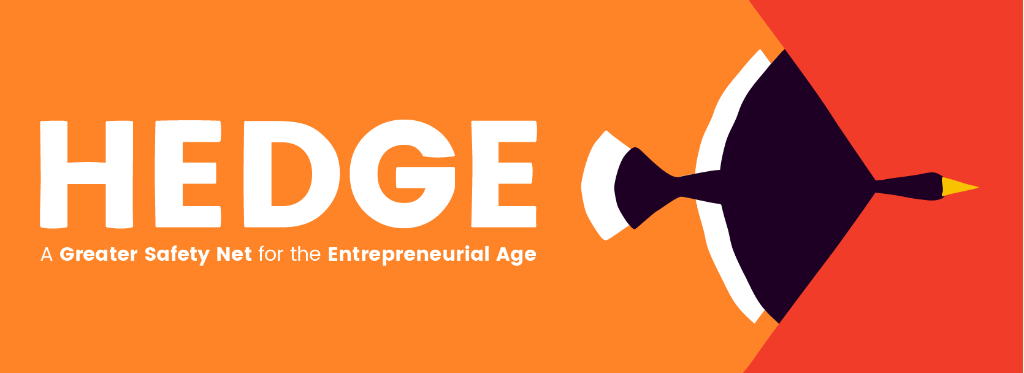
Dear all,
This is 2018’s last newsletter—and issue #101! Before launching the new year, I thought I’d keep it simple and suggest you go through some of the best articles I read during the year.
I made the selection by going through my Evernote, starting from January. That means the end of the year is a bit underrepresented, since I haven’t clipped all the articles I spotted over the past weeks. I have also decided to not include things that are not articles per se, like tweetstorms, white papers or podcasts. Finally, I omitted authors that I quote often or have already highlighted in previous issues, such as , Bill Janeway, and Mariana Mazzucato, so as not to repeat myself 😘 Enjoy!
The essentials of 2018
👩⚕️ One reason why displaced male workers won’t consider taking positions in proximity services is that they’re often seen as women’s work. But we're making progress: ‘Forget About the Stigma’: Male Nurses Explain Why Nursing Is a Job of the Future for Men (Claire Cain Miller and Ruth Fremson, The New York Times, January 2018).
🇨🇳 How things are changing! At the beginning of this year, many of us thought that China was bound to soon rule the world. Today, we’re past 'peak China', with most people explaining that the West will keep its edge after all. Develop your own opinion 🤓 by reading Making China Great Again (Evan Osnos, The New Yorker, January 2018).
⚔️ I’ve long been a fan of Steve Yegge, the author of a legendary rant on why companies should design themselves as platforms. After many years at Google, he got bored and decided to go to war again by joining the fast-growing South-Asian company Grab: Why I Left Google to Join Grab (January 2018).
My book Hedge makes the case that tech companies should participate in inventing a new Safety Net to make the Entrepreneurial Age more inclusive. The following article makes exactly the same argument—and it’s breathtaking! Can Big Tech Be Tamed? (Gary Kamiya, San Francisco Magazine, March 2018).
💀 Many think that Facebook is in bad shape because of all the scandals. My view is that those scandals only aggravate a more fundamental problem: Facebook’s core product is irremediably broken. And no one explained it better than Benedict Evans: The Death of the Newsfeed (April 2018).
It’s hard to find interesting thoughts on regulating tech companies—mainly because few people are experts at both technology and regulation. Chris Yiu, of the Tony Blair Global Institute, is one of the most promising emerging experts in that field. Have a look at Don’t break big tech, fix it (TechCrunch, April 2018).
⚗️I’m always explaining to people that they shouldn’t confuse R&D with innovation—and that startups don’t have much to do with the former. However, it doesn’t mean that R&D isn’t important. Read There’s No Good Alternative to Investing in R&D (Anne Marie Knott, Harvard Business Review, April 2018).
As readers of Carlota Perez know, it’s not the first time we’re going through a paradigm shift. But we’re lacking something essential: business leaders who, like the Victorian industrialists, tackle the challenges of institutional innovation. Read Where Are the Victorians? (David Rimmer, Leading Edge Forum, June 2018).
🍳 2018 is the year when Anthony Bourdain died. Like most Europeans, I didn’t know him at all! But I caught up, read some articles, watched hours of video, and became a fan. Here’s a tribute by Richard Florida: Urbanists Could Learn a Lot From Anthony Bourdain (City Lab, June 2018).
I hated those years when people thought that technology was all about inventing new ways of advertising. However I must admit that technology has had a transformative effect on building brands. Read more in The death of Don Draper (Ian Leslie, The New Statesman, July 2018).
🕸️ Mike Maples is a prominent venture capitalist—and a difficult man to deal with on Twitter. He wrote one of the best articles I know on the changing nature of business in the age of ubiquitous computing and networks: Network-Based Businesses Will Disrupt All Sectors of the Economy (Fortune, August 2018).
🇵🇱 A sign of the current paradigm shift is the extreme polarization of the political discourse and the rift it creates between people that used to be friends. It’s happening in Poland and all over the world, as told in A Warning From Europe: The Worst Is Yet to Come (Anne Applebaum, The Atlantic, October 2018).
🇺🇸 Fascism happens when business leaders exploit right-wing populism to tame the unrestful working class. In this regard, Trump’s America has much in common with 1930s Germany, says a respected historian: The Suffocation of Democracy (Christopher R. Browning, The New York Review of Books, October 2018).
🏭 I often struggle to convince people that technology can improve productivity in the service economy. And so I welcomed this a16z article that makes precisely that point. What’s next for marketplace startups? Reinventing the $10 trillion service economy, that’s what (Andrew Chen and Li Jin, November 2018).
🇬🇧 A few weeks ago, I wrote that I didn’t expect Brexit to be a setback for entrepreneurs in Europe. But reading this article by Umair Haque definitely convinced me that it would (will?) be a major blow for the British people: What the Effects of Brexit Will (Really) Be (Eudaimonia, December 2018).
Buy Hedge!
Holiday promotion! There’s still time to buy my book Hedge at a discounted price. So don’t wait! Get it from the relevant Amazon website depending on where you are: 🇺🇸US, 🇬🇧UK, 🇫🇷FR, 🇩🇪DE, 🇮🇹IT, 🇪🇸ES.
As for me, I’m on my way to Greece, where we’ll do a 4-day road trip around the Peloponnese with my son Ferdinand. Enjoy your Christmas break!
Warm regards (from Paris, France),
Nicolas


